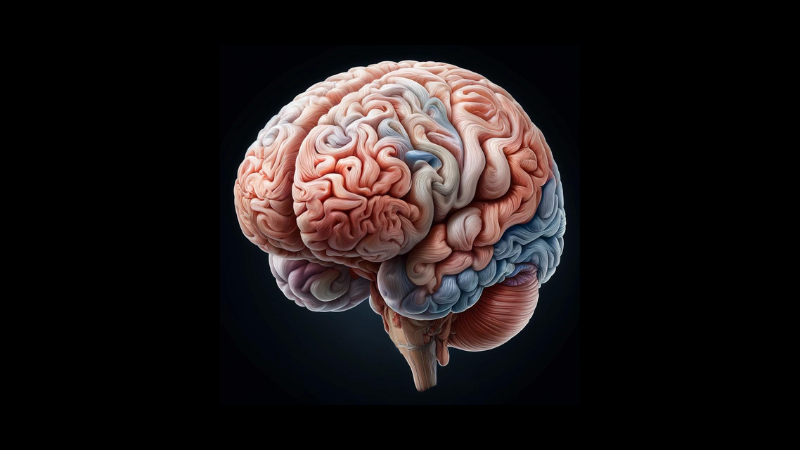Understanding Alzheimer's Disease: Causes, Symptoms, and Treatment Options
Sep 23, 2024
Worst Common Habits for the Brain That Can Cause Alzheimer’s
The brain is a remarkable organ, responsible for controlling everything from memory to movement. However, the choices we make daily can impact our brain’s health. Certain common habits may increase the risk of developing neurodegenerative diseases like Alzheimer’s, a condition affecting millions worldwide. Understanding these habits can help you take preventive steps to protect your brain’s longevity.
1. Lack of Mental Stimulation
Your brain is like a muscle; the more you use it, the stronger it becomes. Engaging in mentally stimulating activities like puzzles, reading, or learning new skills can help build cognitive reserves. However, a lack of mental stimulation can weaken neural pathways, potentially contributing to early cognitive decline and increasing your risk of developing Alzheimer's disease. Regularly exercising your brain is crucial to maintaining mental sharpness as you age.
2. Poor Sleep Habits
Chronic sleep deprivation is a significant risk factor for Alzheimer's. During sleep, the brain clears out toxic waste products, including beta-amyloid plaques, which are linked to Alzheimer’s. Poor sleep patterns, insomnia, or sleep apnea can prevent this process, allowing these harmful plaques to accumulate. Ensuring you get adequate, high-quality sleep is essential for brain health and preventing cognitive decline.
3. Unhealthy Diet
What you eat affects your brain’s function. Diets high in saturated fats, sugars, and processed foods can lead to inflammation and oxidative stress, both of which are linked to Alzheimer’s. Adopting a diet rich in antioxidants, healthy fats, and lean proteins, such as the Mediterranean diet, can significantly reduce your risk of cognitive decline. Avoiding foods that lead to poor vascular health can also help protect your brain.
4. Sedentary Lifestyle
Lack of physical activity is another common habit that can negatively impact brain health. Regular exercise promotes blood flow to the brain, reduces stress, and enhances memory function. A sedentary lifestyle weakens these processes, leading to a decline in cognitive function over time. Incorporating regular physical activities like walking, yoga, or strength training into your routine can improve brain health and help prevent Alzheimer’s.
5. Chronic Stress
Chronic stress releases cortisol, a hormone that, in excessive amounts, can damage the hippocampus, the brain region responsible for memory. Prolonged exposure to stress weakens the brain’s ability to process and retain information, contributing to the cognitive decline seen in Alzheimer’s. Managing stress through meditation, breathing exercises, and mindfulness can safeguard your brain’s health and prevent damage.
6. Excessive Alcohol Consumption
While moderate drinking may have some benefits for heart health, excessive alcohol consumption can have a damaging effect on brain cells. Heavy drinking over time leads to memory loss, brain shrinkage, and an increased risk of Alzheimer’s. Reducing alcohol intake can help prevent long-term damage and reduce the risk of neurodegenerative diseases.
7. Smoking
Smoking is a well-known risk factor for many diseases, including Alzheimer’s. The toxins in cigarettes damage brain cells and contribute to inflammation and oxidative stress, accelerating cognitive decline. Quitting smoking can significantly improve brain health and lower the risk of developing Alzheimer’s later in life.
8. Social Isolation
Humans are social creatures, and regular interaction is crucial for brain stimulation. Social isolation can lead to loneliness, depression, and cognitive decline. Studies have shown that people who remain socially active and maintain close relationships are at a lower risk of developing Alzheimer’s. Staying connected with family and friends can support mental health and help keep your brain sharp.
Conclusion
Many of the habits we consider part of daily life can significantly affect our brain's long-term health. By avoiding poor sleep habits, chronic stress, unhealthy diets, and social isolation, we can reduce the risk of Alzheimer's disease and other cognitive issues. It's never too late to make lifestyle changes that will protect your brain.
For more information on brain health and preventing neurological disorders like Alzheimer’s, visit Steris Neurology.
Recent Post

What to Expect When Taking Opipramol 100 mg: A First-Timer’s Guide

How Do Empagliflozin, Linagliptin, and Metformin ER Work Together for Diabetes Control?

Why Doctors Prescribe Pregabalin with Epalrestat and Methylcobalamin for Nerve Pain Steris Healthcare.

Steris Healthcare Pvt Ltd Radiates Excellence at the Dec 2025 ZEE Media Global Innovation & Leadership Summit, London!

Terbinafine 250mg & Itraconazole 100mg: The Ultimate Solution for Stubborn Fungal Infections Steris Healthcare.

Understanding Nebivolol 5mg & S-Amlodipine 2.5mg: A Powerful Combo for Heart Health

FLAVOSHIELD 500: The Complete Guide to Micronized Purified Flavonoid Fraction for Venous Health Steris Healthcare.

Unlocking Relief: How Egolix 150mg Treats Endometriosis Pain Steris Healthcare.

Isosorbide Mononitrate 60 mg in Long-Term Angina Management: Role and Best Practices Steris Healthcare.

How Ribavirin Capsules Help in Treating Chronic Viral Infections Steris Healthcare.

